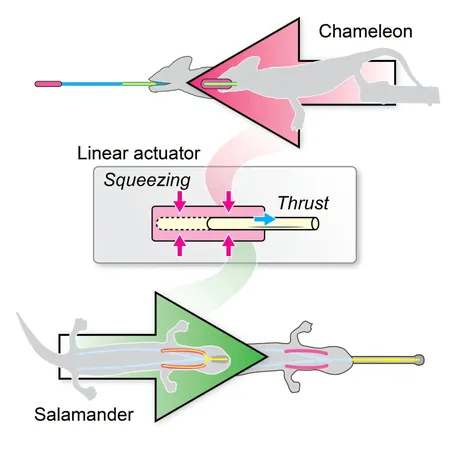
Revolutionary AI Tool Set to Transform Drug Discovery by Healing Diseased Cells
2025-09-09
Author: Rajesh
A Game-Changer in Medicine
In an innovative leap forward for drug discovery, researchers at Harvard Medical School have unveiled a groundbreaking artificial intelligence tool called PDGrapher, designed to pinpoint treatments that can restore health to diseased cells.
Ditching Traditional One-By-One Testing
Unlike conventional methods that test one protein or drug at a time in hopes of remedying an illness, PDGrapher takes a holistic approach. This free-to-use model evaluates multiple factors driving disease, identifying the most promising genes that can help reverse disease states.
This AI-driven approach promises to accelerate the drug discovery process, potentially unlocking therapies for conditions that have long resisted traditional methods.
The Chef's Recipe for Health
As explained by study senior author Marinka Zitnik, an associate professor at the Blavatnik Institute at HMS, traditional drug discovery is akin to tasting numerous dishes in search of the perfect flavor. In contrast, PDGrapher acts as a master chef, expertly combining ingredients to create an ideal therapeutic outcome.
Current methodologies often overlook the complexities of diseases, focusing on a single protein's activity. This limitation has hindered progress against diseases deriving from multifactorial interactions among genes and pathways.
Unraveling the Cellular Web
PDGrapher utilizes a sophisticated graph neural network, which not only analyzes individual data points but also explores the connections between them. By mapping relationships among genes, proteins, and cellular signaling pathways, the tool predicts effective therapy combinations that can restore healthy cellular function.
Instead of sifting through vast drug databases, PDGrapher homes in on the combinations most likely to succeed, simulating potential outcomes of modifying disease-driving cellular components.
Tracking Down Targets with Precision
Researchers have trained PDGrapher using extensive datasets of diseased cells pre- and post-treatment to understand which genes to focus on for reversing ailments. Testing on 19 datasets across 11 cancer types, the model successfully identified previously known targets while also suggesting novel candidates backed by emerging evidence.
A Leap Into the Future of Treatment
This technological advancement not only improves the accuracy of drug target identification but also accelerates the discovery process significantly, yielding results up to 25 times faster than other AI solutions.
The implications for complex diseases like cancer are immense, as PDGrapher identifies multiple therapeutic targets, potentially overcoming cancers' capacity to outsmart drugs that attack only a single point.
A Personalized Path to Healing
With further validation, this model could eventually enable personalized treatment design based on an individual’s cellular profile. By pinpointing biological drivers of diseases, PDGrapher may also provide insights into why particular drug combinations succeed.
Future Endeavors with PDGrapher
The research team is currently applying PDGrapher to brain diseases, including Alzheimer's and Parkinson's, aiming to identify the genetic mechanisms that could restore cellular health. They are collaborating with institutions to uncover new drug targets for rare neurodegenerative disorders.
"Our ultimate aim is to map out all possible routes to healing at the cellular level," Zitnik concluded, hinting at a revolutionary shift in how we approach disease.
Support and Acknowledgments
This groundbreaking work has been made possible by a combination of federal grants and support from numerous prestigious organizations, reflecting a collective commitment to advancing medical research through innovative technology.


 Brasil (PT)
Brasil (PT)
 Canada (EN)
Canada (EN)
 Chile (ES)
Chile (ES)
 Česko (CS)
Česko (CS)
 대한민국 (KO)
대한민국 (KO)
 España (ES)
España (ES)
 France (FR)
France (FR)
 Hong Kong (EN)
Hong Kong (EN)
 Italia (IT)
Italia (IT)
 日本 (JA)
日本 (JA)
 Magyarország (HU)
Magyarország (HU)
 Norge (NO)
Norge (NO)
 Polska (PL)
Polska (PL)
 Schweiz (DE)
Schweiz (DE)
 Singapore (EN)
Singapore (EN)
 Sverige (SV)
Sverige (SV)
 Suomi (FI)
Suomi (FI)
 Türkiye (TR)
Türkiye (TR)
 الإمارات العربية المتحدة (AR)
الإمارات العربية المتحدة (AR)